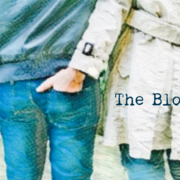So what is clean pain vs. dirty pain? Recently I ran across this description of the ways couples typically interact that just rang true. This concept of pain describes both the perils and the possibilities that exist within our relationships.
If you can agree that pain is a given at times with our partners, this will make a lot of sense to you. Obviously pain, like most things, is by degrees and has wide variations in its expression. You could be miffed that your lover failed to pick up milk OTW home from work as requested, or you could be caught in the devastation that follows when an affair is revealed. There is a wide variation—in both clean and dirty pain.
The truth is that once you and your partner start moving past the initial stage of a relationship where everything is new and shiny, pain may begin. That is not a bad thing. I repeat, that is not a bad thing. You could substitute the word conflict for pain if that helps broaden your understanding.
The truth is that once you and your partner start moving past the initial stage of a relationship where everything is new and shiny, pain may begin.
As I lay the groundwork for why this is true, please understand that your relationship acts as a crucible where each person has the opportunity to become the best version of themselves that they wish to become. That is the primary function of a healthy relationship.
Naturally over time as you learn each other and your differences more deeply, conflicts will arise. In those conflicts you will find yourself choosing clean pain or dirty pain time and time again. None of us is immune from these choices, but true growth both individually and as a couple will only come from choosing clean pain.
So What Is Clean Pain vs. Dirty Pain?
Clean pain comes from a place of accepting the conflict vs shrinking from it. In clean pain you use the best parts of yourself to engage productively in the conflict. It includes discomfort, and sometimes leaning into the parts of yourself that may need work. All of that is conducted in the best interests of the overall relationship, and is not “I’m right and you’re wrong”—even if it’s true!
When a person chooses dirty pain, they are coming from their most wounded parts. This looks any number of ways. It includes sarcasm, gaslighting, manipulation, contempt, capitulation, betrayal (there are many ways to betray), possibly name-calling, and for many, avoidance. It may even lead to violence. Dirty pain will always prolong and deepen conflict.
Sadly, people will most often choose dirty pain. Perhaps this knee jerk response means for them that cruelty or avoidance will hurt less than considering the possibilities of transforming themselves, or engaging in (healthy) compromise. Sometimes they are simply missing the self awareness needed to see they have work to do.
Engaging in either choice will lead you to one of two cycles. The clean pain will lead you both to a new cycle of growth and will deepen your own personal growth towards being the best you possible.
The dirty pain choice will also lead to a cycle: one of common cruelty. That may be heightened conflict, or create conditions for the even worse path of contempt. Over time, contempt leads to the dissolution of the relationship.
There is no “promise” inherent in choosing clean pain that your coupledom will survive as the result. This choice could also mean that the honesty and reflection you undergo may lead to a choice to leave your partner. That also provides a possibility for growth.
Submerging the things that matter to you will override your integrity, and cause you to live a life that does not align with your values.
Sometimes compromise and better efforts at communication work, but if those choices are made only in the effort to soothe rough waters, and they tend to repeat themselves, then you have not actually acted out of authenticity for yourself. Submerging the things that matter to you will override your integrity, and cause you to live a life that does not align with your values. Over time, that will result in unhappiness for you both.
If you need help with parsing this out, contact me here. I love helping couples figure these issues out. It is especially gratifying when couples choose to work on these issues before they are already steeped in pain.
I believe it is truly worth it to experience the pain of growth to have the richness that can happen with a loving partner that you can walk through this thing called life, with all of its joys and sorrows.
Resource: Monsters In Love by Resmaa Menakem. Many thanks to Menakem for the language to help couples understand themselves more deeply.

